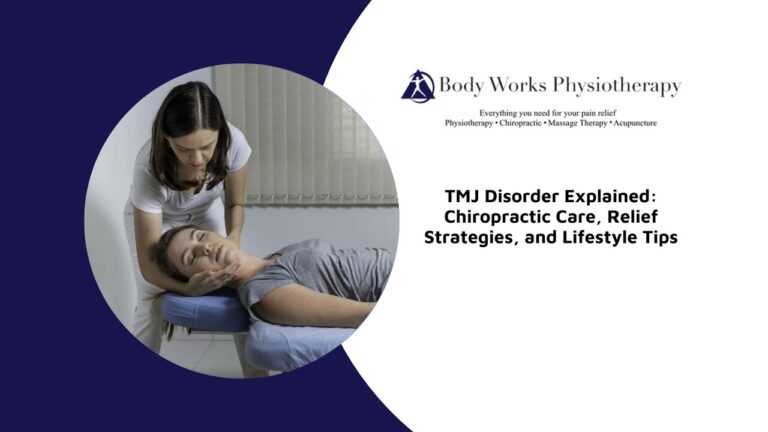
I’ll never forget the day I experienced vertigo for the first time. It was a turning point in my life and it sparked a passion within me to learn more about how to manage this debilitating condition. In this post, I want to share what I’ve learned and how chiropractic care can take your vertigo worries away!
Understanding Vertigo
Vertigo is a sensation of spinning or dizziness that can be caused by issues with the inner ear or the vestibular system. Vertigo is primarily categorized into two types: peripheral vertigo, which is related to problems in the inner ear, and central vertigo, associated with issues in the brain or its pathways.
- Peripheral Vertigo: Peripheral vertigo is more common and includes conditions like benign paroxysmal positional vertigo (BPPV), Meniere’s disease, and vestibular neuronitis. BPPV, for example, involves small calcium particles clumping up in canals of the inner ear, which sends signals to the brain about body and head movements relative to gravity.
- Central Vertigo: Central vertigo originates from problems in the central nervous system, specifically the brainstem or cerebellum. It is associated with neurological conditions such as strokes or transient ischemic attacks (TIAs), which disrupt blood supply to areas controlling balance, and multiple sclerosis (MS), which affects the protective covering of nerve fibres. Symptoms can be more severe and persistent compared to peripheral vertigo.
How Neck and Spine Alignment Relate to Vertigo
Misalignments in the cervical spine can disrupt nerve function and blood flow to the inner ear, resulting in vertigo symptoms. Chiropractic adjustments aim to restore proper alignment of the neck and spine, thereby reducing pressure on nerves and promoting optimal vestibular system function.
Chiropractic Techniques for Treating Vertigo
A chiropractor can help those struggling with vertigo by providing treatment aimed at addressing the underlying causes of vertigo, such as benign paroxysmal positional vertigo (BPPV) or misalignments in the cervical spine.
Chiropractic techniques effective for treating vertigo include the Epley maneuver, which involves a series of head movements to reposition displaced inner ear crystals causing BPPV. Additionally, spinal adjustments targeting misalignments in the cervical spine can help alleviate vertigo symptoms.
- Epley Maneuver: The Epley Maneuver is a non-invasive technique where a chiropractor guides you through specific head movements. This sequence helps to move the dislodged calcium crystals in the inner ear back to their proper position, relieving the dizziness associated with BPPV.
- Spinal Adjustments: Spinal adjustments involve the chiropractor applying controlled force to the spine, particularly the cervical vertebrae. This helps improve nerve function and alleviate vertigo symptoms, thereby restoring balance and reducing discomfort.
Optimal Number of Chiropractic Sessions for Vertigo
The number of chiropractic sessions needed to see improvements in vertigo symptoms varies depending on the underlying cause and severity of the condition. Some patients may experience relief after just a few sessions, while others may require ongoing care over several weeks or months.
Preventing Vertigo Recurrence with Chiropractic Adjustments
Chiropractic adjustments can also help prevent vertigo from recurring by addressing underlying issues such as spinal misalignments or inner ear disturbances. Regular chiropractic care can help maintain proper spinal alignment and optimize nervous system function, reducing the likelihood of vertigo episodes.
- Maintaining Spinal Health: Regular chiropractic care keeps the spine aligned, promoting balance and proper nerve function, crucial for preventing vertigo by maintaining a well-functioning vestibular system.
- Enhancing Nervous System Function: Chiropractic adjustments improve nervous system function, essential for accurately processing sensory information related to balance and preventing vertigo symptoms.
- Optimizing Inner Ear Health: Proper cervical spine alignment from chiropractic adjustments can enhance blood flow and nerve function to the ears, stabilizing the vestibular system and helping prevent vertigo recurrence.
- Preventive Care and Education: Chiropractors also educate you on lifestyle adjustments and home exercises to strengthen the balance system, serving as a preventive measure against future vertigo episodes.
Is Chiropractic Care Suitable for All Types of Vertigo?
Chiropractic care is most effective for vertigo caused by issues such as BPPV or cervical spine misalignments. While it may not be suitable for all types of vertigo, chiropractic treatment can often provide significant relief for many individuals experiencing vertigo symptoms.
Chiropractic care can play a supportive role in managing symptoms of central vertigo by enhancing overall nervous system health and maintaining joint health. However, it is crucial for individuals with central vertigo to also seek comprehensive medical treatment to address the root causes effectively.
By promoting better spinal alignment and nervous system function, chiropractic care helps ensure that communication pathways remain as healthy as possible, which can be beneficial in managing the symptoms of central vertigo, even though it is typically not the primary treatment method for these conditions.
Treating Vertigo: A Holistic Approach
Chiropractic care for vertigo complements other treatments such as physiotherapy or vestibular rehabilitation by addressing underlying spinal misalignments and promoting optimal nervous system function. Integrating chiropractic care with other vertigo treatments can enhance overall outcomes and improve patient well-being.
- Physiotherapy for Vertigo: Physiotherapy aids vertigo treatment through exercises that improve balance and vestibular system strength. Tailored exercise programs focus on balance training and help the brain adapt to inner ear changes, enhancing recovery.
- Vestibular Rehabilitation: Vestibular rehabilitation involves specialized exercises that reduce dizziness, improve balance, and decrease sensitivity to motion. This therapy is crucial for long-term improvement in managing vertigo symptoms.
This multifaceted approach combines chiropractic, physiotherapy, and vestibular exercises to effectively restore function and reduce the frequency of vertigo episodes.
Your Path to Steady and Balanced Living
Now that you’ve learned about chiropractic care for vertigo, it’s time to take action. At Body Works Physiotherapy in Scarborough, our team specializes in offering chiropractic care for a wide variety of conditions, including vertigo! We’re here to help you get back to the activities you love! Contact us today and let’s work together towards a healthier, happier you.






